While most people might associate wedding planning with the venue and the aesthetics, the real pitfalls are in setting up the guest list. However, one would think that one’s immediate family is a safe bet, right up until they reveal themselves as a constant source of drama.
A woman asked the internet for advice when she discovered that her father refused to attend her cruise wedding, because, in his words, it wouldn’t be on US soil. Considerably later, she even shared an update on how she chose to handle the situation and what transpired afterwards.
A parent refusing to attend one’s wedding can be very upsetting

Image credits: freepik (not the actual photo)
Which is what happened to one woman when she planned a cruise wedding


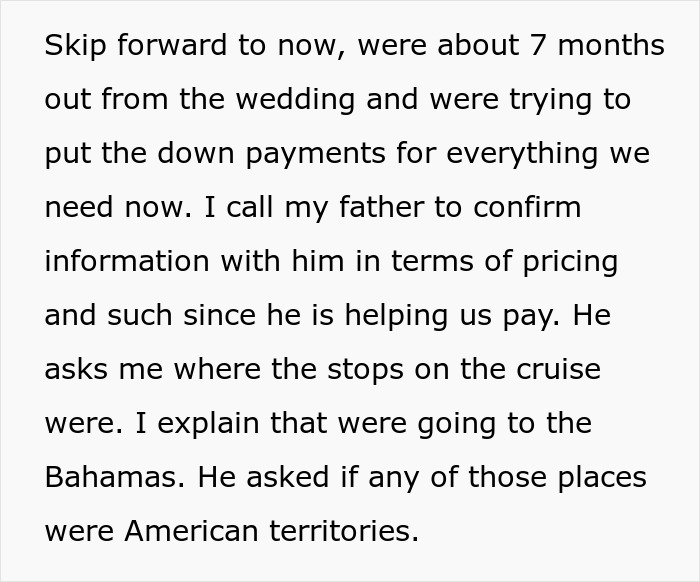

Image credits: Josiah Weiss / Unsplash (not the actual photo)

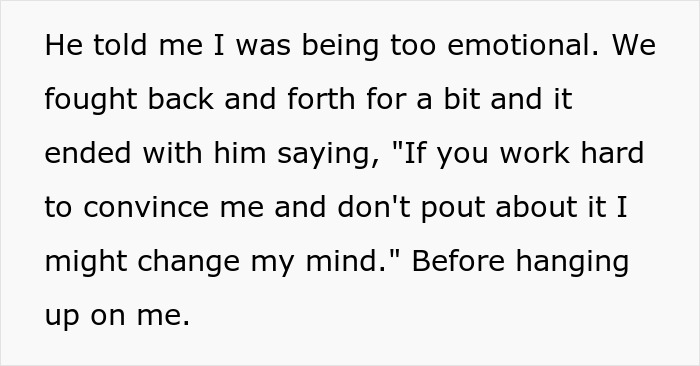


Image credits: goffkein / freepik (not the actual photo)

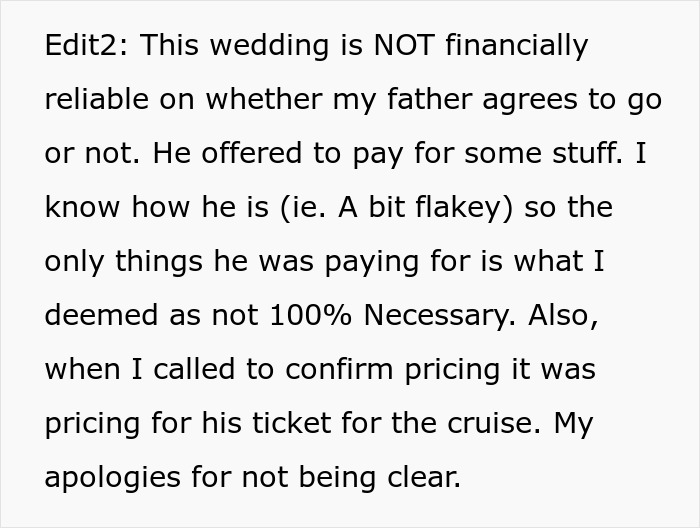

Image credits: Hazzie666
The father seems insensitive and downright manipulative
A 24-year-old woman found herself in an absurd yet painful situation when her father refused to attend her wedding cruise to the Bahamas, declaring he would never leave “American soil” and demanding she spend six months convincing him to change his mind. The story encapsulates a common and deeply frustrating family dynamic: when a parent’s rigid beliefs, controlling behavior, and emotional manipulation collide with an adult child’s major life milestone. While the specific issue here involves extreme nationalism, the underlying pattern of parental control and conditional love appears in countless families around weddings, career choices, relationships, and other significant decisions.
The father’s behavior reveals several troubling patterns beyond his eccentric refusal to leave the country. First, there’s the moving goalpost. He initially approved of a cruise wedding, only to explode months later when concrete details emerged. This bait-and-switch tactic, whether intentional or not, destabilizes planning and creates uncertainty, which is in line with common manipulation tactics. Second, his demand that she “work hard to convince him” and “not pout about it” is more textbook manipulation, framing his attendance as something she must earn through sufficient emotional labor rather than something he would naturally want to provide as her father. Third, his dismissal of her feelings as “too emotional” is a classic invalidation technique that positions reasonable hurt as irrational overreaction.
The poster’s situation is further complicated by her father’s inconsistent presence in her life. He wasn’t around much until her teenage years, and even his financial contribution to the wedding seems unreliable, with the poster wisely limiting his involvement to “not 100% necessary” items. This history of flakiness adds another layer: she’s dealing not just with his current unreasonable demand but with a lifetime pattern of conditional and unreliable paternal involvement. So how do you manage family dynamics like this, where a parent’s demands or beliefs threaten to derail your important life events?

Image credits: sarah b / Unsplash (not the actual photo)
Just because someone is family doesn’t mean they get to walk all over you
The first and most crucial step is establishing firm boundaries. In this case, the appropriate boundary is: “This is when and where my wedding is happening. You’re invited and I hope you’ll be there, but the wedding will proceed with or without you.” The woman eventually sent exactly this message, which was the right move. Boundaries feel harsh when you’re used to accommodating unreasonable behavior, but they’re essential for protecting your peace and autonomy.
Importantly, setting boundaries means accepting that you cannot control the other person’s response. Her father might choose not to attend. That would be sad, disappointing, and hurtful, but it would also be his choice and his loss. You cannot sacrifice your own life, your plans, your happiness, or your partner to manage a parent’s feelings or accommodate their unreasonable demands. His attendance is not worth more than your wedding being what you and your partner actually want.
The second key principle is refusing to engage in emotional labor Olympics. Her father’s demand that she “convince him” is a trap. No amount of begging, pleading, or cajoling will actually change his mind if he’s determined to be stubborn. Moreover, engaging in this dynamic reinforces that his approval must be earned through sufficient groveling, setting a terrible precedent for your entire future relationship. Adult children are not responsible for managing their parents’ emotions or convincing them to be reasonable. The emotional labor required to coddle a parent’s unreasonable position is energy better spent on your actual life.
Third, recognize manipulation tactics and refuse to play the game. When someone says “if you work hard enough, I might change my mind,” they’re dangling approval as a reward for submission. When they dismiss your legitimate feelings as “too emotional,” they’re trying to make you doubt your own reasonable reactions. Identifying these tactics helps you resist them. A simple response like “I’m not going to argue about this. The invitation stands, the decision is yours” removes you from the manipulation dynamic entirely. For those who are curious, she also later shares some updates, which can be found after the comments below.
She shared some thoughts with people in the comments




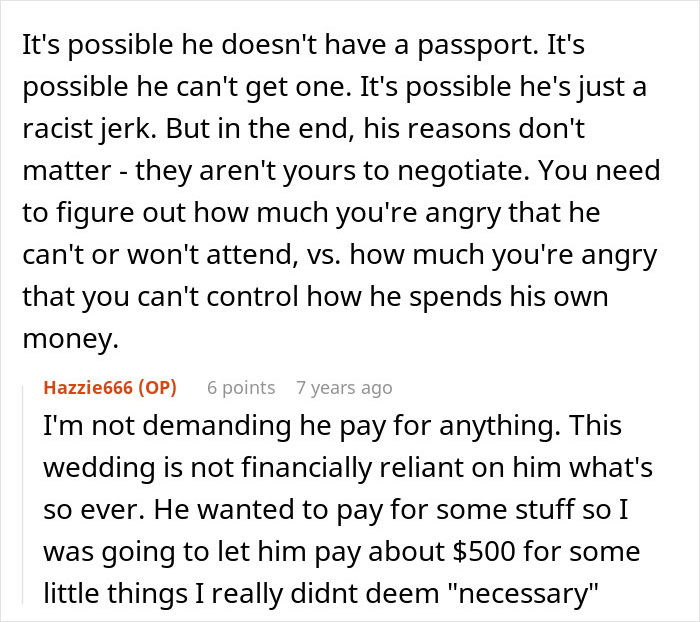
Readers did their best to give her some advice


















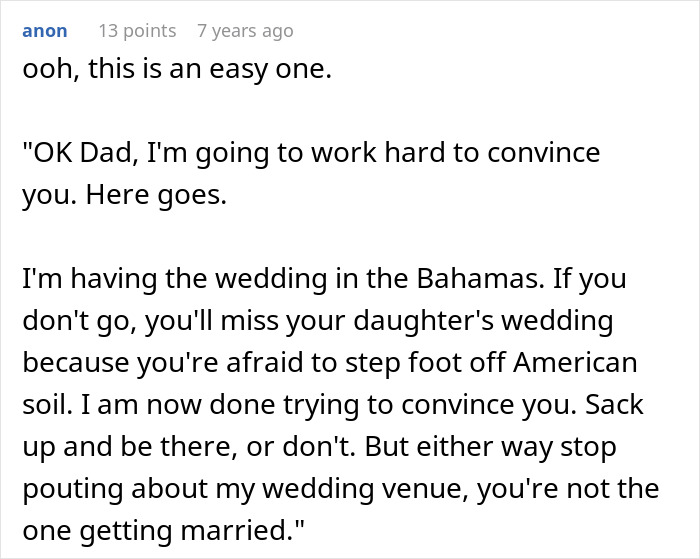
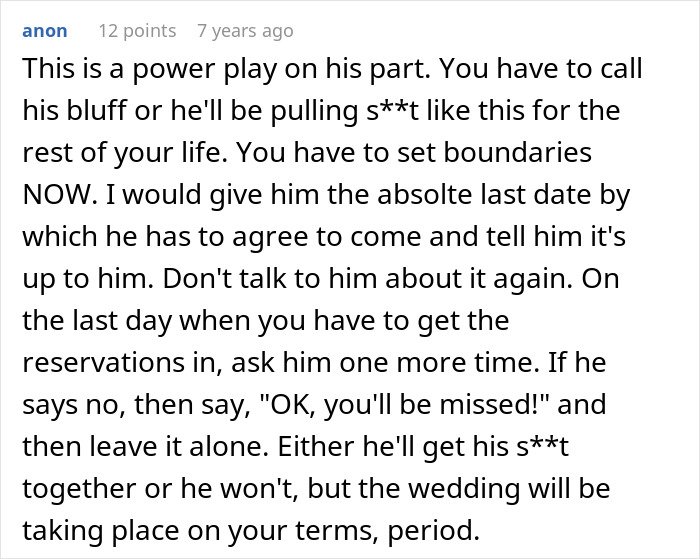
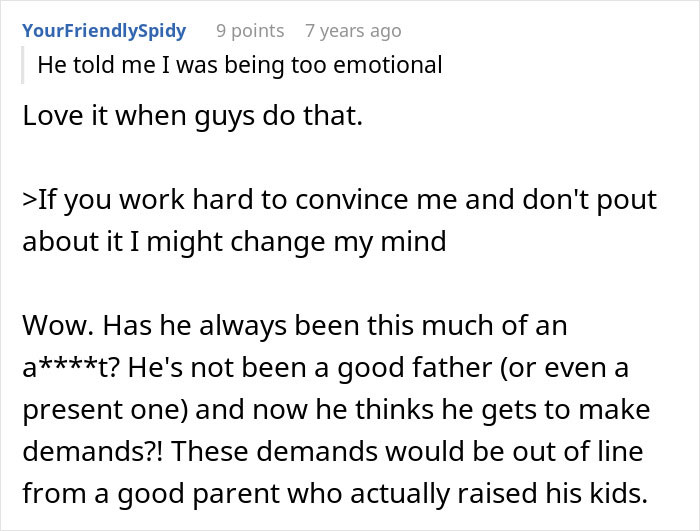



Later, she shared an update


Image credits: Jeongim Kwon / Unsplash (not the actual photo)



Image credits: Hazzie666
She added some thoughts to a few of the comments



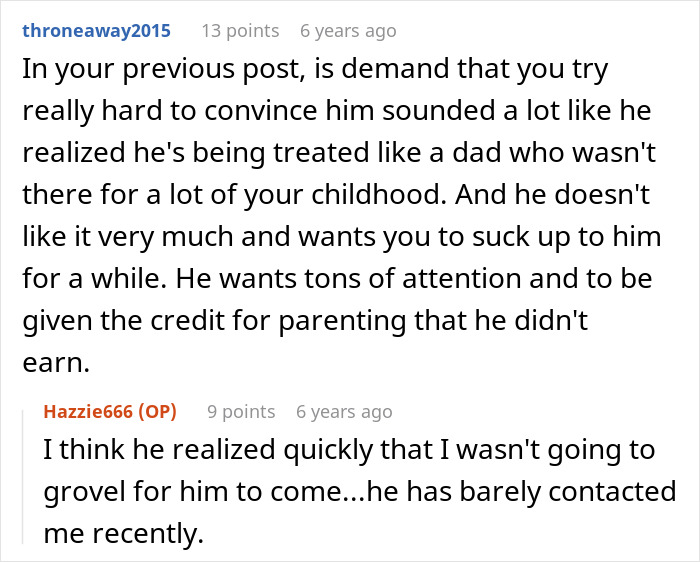





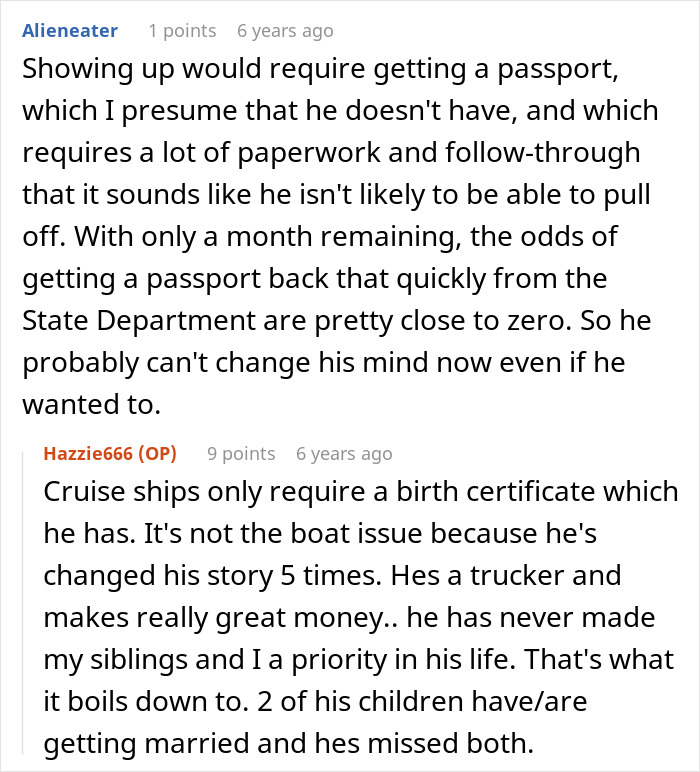
Years later, she returned to tell us what has happened since


 Follow Us
Follow Us





